Feeling Like Your Partner Doesn’t Care?
Feeling unloved and unwanted by your husband or boyfriend is a terrible and lonely feeling that can have an impact on every area of your life.
In this post, we’ll take a different look at what may be going on underneath the surface when you’re feeling unloved and unwanted by your husband and share a new perspective.
Dr. Sue Johnson, the creator of the most proven form of couples therapy that exists, known as Emotionally Focused Couples Therapy, describes the foundation of a strong relationship with an easy to remember acronym in her best selling book for couples, Hold Me Tight: Seven Conversations for a Lifetime of Love (which I highly recommend, and suggest to every couple who steps into my office to read).
This foundation can be remembered with the acronym “A.R.E.”
Each letter stands for key factors that must be present in your relationship for it to thrive.
What couples are fighting about when they are really in trouble with each other and feel miles apart is usually not what they think they’re fighting about, e.g., money, family issues or even parenting styles.
They’re fighting about the question, “ARE you there for me?”
Can you relate?
When you’re feeling unloved and unwanted, you’re likely feeling that you can’t answer that question, “are you there for me,” affirmatively.
Let’s look at what A.R.E. stands for:
A -Accessible
Are you and your partner open and accessible to each other?
R – Responsive
When you go to each other, do you respond? Do you show you’re there, available, responsive, clearly indicating that your partner is a priority to you, or vice versa?
E – Emotionally Engaged
Do you care about each other, like really, how your days went? Do you take an interest in your partner’s well being?
These things sound obvious but they often slip when partners find themselves feeling unloved and unwanted.
They are the foundation for a solid relationship and marriage.
But what if you just can’t get your partner to be accessible, responsive OR engaged?
Many people complain to me that they just feel plain invisible in their relationships, like they’re not even considered.
And this can be super frustrating.
As a result, when someone doesn’t feel heard, seen or considered, they often turn the volume up in their relationship. In other words, they will become louder themselves.
That makes sense, right?
If you’re feeling invisible, you’ll do whatever you can to be more visible. If you’re feeling unheard, you’ll get louder.
Making more noise is a behavior that makes sense if you are operating under the assumption that your partner doesn’t notice or care about you. While you’re trying to get your partner’s attention, those feelings of frustration get channeled through your efforts to reach them, and you may become critical to your partner, if not downright hostile.
It’s like you’re poking at your partner trying to get a response, and nothing seems to work.
So the more your partner withdraws or seems to shut down, the less you feel noticed, the louder you get, and the harder you poke.
It only makes sense for you to think that your partner just doesn’t care about you.
But that’s where so many people get it wrong.
You may not believe what I’m about to say…
It’s not that your partner doesn’t care about you, it’s that they care so much. And your little attacks are constant reminders of how they’ve got it all wrong. As a result, they back off, withdraw, and more likely than not, feel helpless that they’ll never be able to figure out how to get it right. They essentially give up. It’s too painful for them to even try.
And you go feeling all the more invisible, unloved and unwanted by your partner.
Try to believe me on this one. I’ve worked with many couples who fall into this all-too-common pattern in which one of you feels invisible and the other seemingly doesn’t care. I’ve heard from both partners though, and when we get down to it, the folks who shut down and withdraw really do care.
The fact that they care so much is actually why they shut down.
In fact, psychologist Dr. John Gottman and his colleagues have measured what happens physiologically to men when they are shut down and backed off from their partners. If they truly didn’t care, their heart rate would be normal and they wouldn’t seem to be physically activated at all.
But that’s not what was found!
Male withdrawers actually have an increased heart rate and measure physiologically as being distressed, proving this point even further.
Even if it is close to impossible to believe that your partner actually cares about you in those moments where you just can’t seem to reach him, there’s a strong likelihood that he cares more than you can imagine.
So when you look like this:
It reaffirms the message that your partner just can’t get it right, and they back away.
They don’t realize that if they just looked at you or listened to you, you’d be fine. You just need to feel important to them. We all need that.
But they think they have to accomplish some unattainable feat to get your approval.
And they back off further.
And the more they back off or seem not to care, the louder, angrier and more dangerous you get in their eyes. And around and around you go in this vicious pattern, with seemingly no resolution.
Psychologist Dr. Sue Johnson calls this pattern “The Protest Polka,” in her book Hold Me Tight: Seven Conversations for a Lifetime of Love, and it is one of the most difficult patterns to get out of.
So what should you do?
Back off!
Turn the volume down. Just give it a shot and see what happens. Try to be gentler and nicer, and see if your partner comes toward you a bit more.
I know this suggestion might feel totally counter-intuitive. You may fear that if you get quieter, your partner will definitely not notice you. But if it’s true, like it is in so many relationships, that your partner cares more than you realize, when you turn the volume down a little, he may start to pay a bit more attention.
He may not feel as threatened and criticized by you, and like a turtle coming out of his shell, he may start to check things out a bit more.
Won’t that be nice?
Underneath that cold, hard, impenetrable shell is a softie who may be feeling more vulnerable and helpless than you realize.
Hopefully this will help, but if not, fear not…
Depending on how long you’ve been caught in this pattern and how strong a hold it has on your relationship, you may not be able to get out of it without a little help from someone outside of your relationship. If your partner doesn’t budge even if you back off, all hope is not lost, it just means it’s going to take a little more work on both of your parts to get things back on track.
You could check out my book, Your Best Love: The Couples Workbook and Guide to Their Best Relationship for starters. It explains this and a few other patterns that couples get caught in perfectly, and is one guide to help you break through them.
This book is based on principles of Emotionally Focused Therapy (EFT). EFT is all about nipping these patterns in the bud so that you both can really become Accessible, Responsive and Engaged with each other.
EFT is a short-term approach that has been demonstrated to produce results for couples in 8-20 sessions, regardless of the level of distress they start therapy with (unless either partner has a history of trauma, in which case it can take longer).
Unlike other approaches, with EFT, you won’t be in therapy for years and years.
Want to learn more?
Check out my book here.
Hopefully you won’t need therapy and you just need to tweak your approach.
You could even share this article with your partner and see if it makes any sense to them.
Emotionally Focused Therapy will help, though, if your own attempts don’t cut it. So if you feel like it’s the best plan for you, don’t be like the average couple who wastes 6 years before getting help.
You deserve your best relationship today, so take action to create it now.
Cheers to your best relationship,
P.S. Grab my book instantly to discover how you can finally be seen, heard and understood by your partner. Just click here!
The comment discussion section below goes into many great additional topics. Continue reading to learn…





 Loading...
Loading...




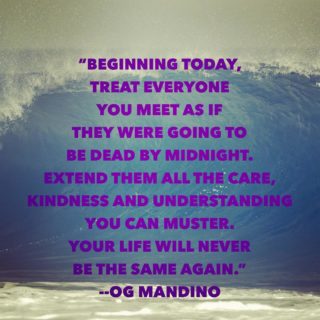
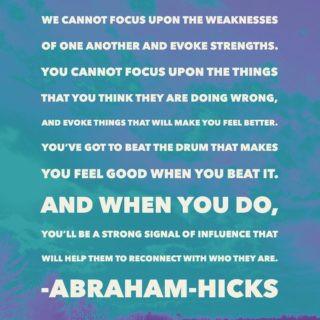







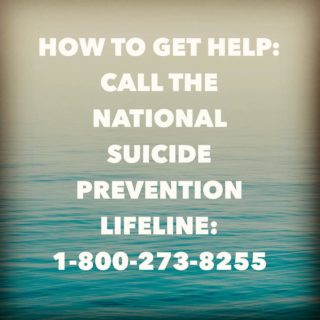
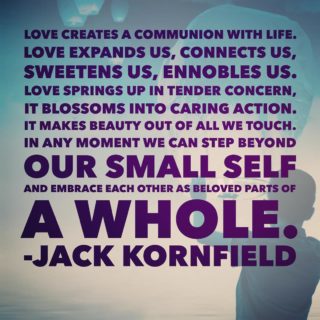
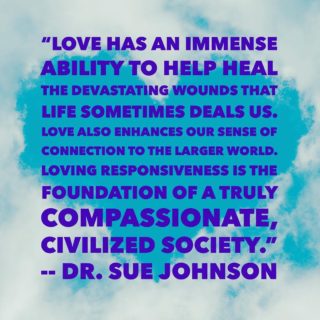

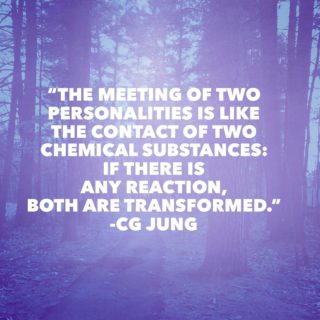





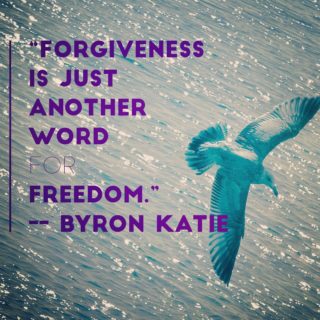






I have done all this ….about 6 months in now and i feel like i did 6 months ago. i feel invisible still..i feel like the slave who looks after everyone that a husband and 4 kids plus my disability!! im exhausted now!! dont know what to do next.
It sounds like you are in a horrible situation and I would recommend that you get some personal support to help you with this so that you can get your power back in the relationship and no longer play the role of the slave. Let me know if I can help in any way – I’d be happy to speak with you for a consult if that’s something you’d like to do. Just click the purple heart at the bottom of the screen and we can see if it makes sense for us to work together and if not, I can offer you some resources that could be helpful. Good luck, and I apologize for my late reply. Thanks for writing in.
Jenev
I feel the same way..
I am in the same situation you describe and feel ignored and unwanted. I think if you love someone and desire them you cannot help but try to pursue them. I sit across from him, while he is playing a game and want him to pay attention to me and wish he had his own intentions to do so and I start to feel angry. I want him to seek me out and want my attention on his own. If he loves me and wants to be with me then he should show it. He should want to make me happy and become involved to find out what that is on his own. I tried telling him when I want his attention. I have even asked him to stop whatever he was doing and make that happen and I didn’t get good results. I dont think a video game, or watching movies should be more important than being with me. When he refuses to stop, or tells me to wait until he is done – I feel insulted and unworthy. If I accept this and wait and he moves onto doing something else as if he forgot I became angry. I shouldn’t have to beg for his attention. If he didnt know I needed his attention, then it could be a missunderstanding. If I tell him I want it and ask him for it, I don’t think he should refuse. Am I out of line?
Hi Kandi,
I don’t think you are out of line at all – it sounds like it’s a very difficult situation that you are in. It’s hard for me to say from a distance what’s going on, but I will say that if you are angry when he doesn’t respond to you, he may notice that, feel like he can’t please you, and withdraw even more. That is just one possibility. If you are going to him openly, vulnerably and honestly letting him know how painful it is for you when you are being ignored (this requires a big risk on your part), and he is still ignoring you, I can see how absolutely painful and difficult that must be. Having a third party help you both connect could be one option to help you get clear on what’s going on. Clearly something needs to change for you to be happy and you have the power to make that change, whether it’s getting additional help, or, if you feel like this is about him not really caring about you, finding someone who does. There’s also a great book that you may wish to check out called “Hold Me Tight: Seven Conversations for a Lifetime of Love,” by Dr Sue Johnson, that speaks about this pattern with couples more in depth and might be very helpful for you. Good luck to you and let me know if I can be of further assistance.
All my best,
Jenev
Your theory just excuses the wrong behavior. You’re wrong on this.
Hi Gabby,
Thank you for your comment. In many cases couples are caught in terrible dynamics where one partner just shuts down, as this post describes.
In other cases, a partner may be completely checked out and not invested in the relationship (or have addiction issues) — which may be considered “wrong behavior” — and can be heartbreaking if one person is invested and the other isn’t.
Either way, shutting down and treating one’s partner as if they are invisible are definitely not behaviors for success in a relationship.
All my best,
Jenev
You and I seem to be married to the same guy. My husband just doesn’t get it. Then he gets mad when my feelings are hurt.? How is that fair? I often wonder if some of my hubby’s issues might be from being adopted and raised without a very affectionate parent. I know I have issues too so I work on myself by reading as I am tonight but something has got to give.
We have been dating for 6 yrs. I feel like everything is too comfortable. We don’t do anything together but share a bed a few hours at night. Rarely see each other because he says he has things to do or at his house with his friends, but his friends bring their wives with them to his house. I stay home with the kids and see him when he has time. I can’t get him to talk about our relationship because he feels nothing is wrong. I feel defeated and not important more so invisible.
Hi Cottongirl – it sounds like taking a stand for yourself and your needs is what might be needed here. Even though he doesn’t feel anything is wrong, clearly you do. I would really recommend speaking with your own private coach or counselor to figure out what you can do to improve this situation, if you aren’t sure how to proceed yourself. I hope you find your power and do something about this situation because you clearly deserve better. Sending you all my best, Jenev
I feel totally invisible in my relationship. My boyfriend would rather watch TV, play video games or play with his smart phone than pay any attention to me. I used to be very critical of him, and it makes sense that the reason I criticized him was to get a response. I’ve tried giving him more space and doing my own thing but after some time, this hasn’t proven to be effective either. I feel even more rejected than I did before. We’ve been together for a few years now and I don’t want to break up with him. We are currently in couples therapy but haven’t really noticed any progress. I feel hopeless.
Hi Jane, this situation sounds so difficult and frustrating, and I’m glad to hear that you are seeing a couples therapist. If you’ve been with your therapist a really long time and have truly felt that there has been no progress, I would recommend bringing that up in therapy and consider trying someone else out who may have a different approach. An Emotionally Focused Couples Therapist is someone who is trained specifically to address this pattern that you are dealing with. Something else that could help is the book “Hold Me Tight: Seven Conversations for a Lifetime of Love” by Dr. Sue Johnson — have you read that? I wish you all the best – the fact that you are in couples therapy together is likely demonstrative of your commitment to each other. I hope you figure this one out soon and start to connect. Sending you all my best, Jenev
I feel like I am a similar suitation myself. My have been married to my husband now for about 13 years and we have fought each other for arguments always start over something small but as i get angrier at him for not responding to why I am angry all the negative feelings about years of arguments comes flooding in and see all this as my husband does not love me or care about, when i try talking to him he blacks me out I just feel like i will in this cycle forever. I do love him dearly and dont want our relationship to end but frequently feel that the pain is too much and I shouldn’t carry on.
Hi Sharon,
It’s really common that even if you start to change your behavior and stop being so angry, he will respond the same way – blacking you out – because the pattern is so ingrained. Have you read the book “Hold Me Tight” by Sue Johnson? I’d really recommend it – or you can check out my book which addresses this in the “shop” section as well. Have you thought about getting personalized support for this? Would he be open to something like that? It could be a game changer in your relationship and if you are both committed to making it work, could save your marriage.
Let me know if I could be of further service.
All my best,
Jenev
I am in similar situation . I’ve been with my boyfriend for 2 years and it has not been a easy ride. Since day 1 I have always felt like he is not as interested in me like others I know that’s sounds strange but that maybe caught my attention more and liked him more .. Maybe the challenge ? I don’t know. But as soon as we started dating I fell deeply in love with him . move in 2 months after and we have been thru so much problems since then lol. Sometimes it seems he would rather pay more attention to another female than me or at time when I tell stories about work or anything I Like he listens but doesn’t seem to care at all . and I am in the process of deciding what I wanted to do with school since I’m thinking of going back to college and he didn’t care at all ..so I brought it to his attention and he doesn’t get it . he just said that I always over react and I should be thankful because he had already changed so much for me.. I love him very much but I always question my relationship and what I stand in his life . I maybe showing too much love and attention that he just takes everything for grandted. Should I maybe try and back off and just let him be and see where it goes ? Please help.
Hi Cristine – thanks for your comment and sorry for the late reply. I would say it’s always important to be clear on what your needs are in a relationship and to let them be known. If he doesn’t deliver, and you both wish to try to make things work anyway, I would suggest considering outside help. Good luck!
It seems almost like you’re my twin lol …. leaving him isn’t gonna help and it seems like being on his good side just makes the relationship happier…. Damn I wish I could meet you so we can talk about this :((( He has been such an ass to me …. but after reading this article … i feel like maybe its not so much of all of these problems being his fault … maybe ive set this thinking in his mind that he can always run to me if he has any major problems and that I will always be there for him no matter what. I’ve set almost like a ‘promise’ or ‘expectation’ that I will fulfill his wishes and whenever I take it away from him, its like taking away what belongs to him already. I have no idea how to make myself feel better or how to feel like myself again, but it seems to me that I should just cut off contact with him which isn’t going to help because it’ll just make me want him more. I’m struggling with the idea of me just being his friend … its almost impossible for me to move on.
My husband goes to the pub with the boys most Friday and or Saturday afternoons after work for a few hours but doesn’t call or text me to say he is. I say just call or text it doesn’t worry me if you go but I want you to show me some respect. I ask him do you want this marriage or not he says I don’t have to answer that stupid question! He then said I don’t care what you say or what you think! He then ignores me and shuts down completely…
He said to me the other day after a disagreement – it’s March – I don’t think we will be married by xmas…
I don’t know what this means he won’t talk about it.. Feeling very confused and lonely
Hi Michelle,
Sorry to hear you are going through this. I’m not saying this is the case, as I obviously don’t know, but people can often say hurtful things in the middle of fights when they don’t mean it. I can see why you are feeling confused and lonely. My suggestion would be to bring up the topic of your marriage with him when things are going better between the two of you, so you can both discuss whether it’s something you want to work on and improve. It’s important to do this calmly. A lot of times people bring up big issues in the middle of conflicts and the discussion becomes “worst case scenario” material. I wish you all the best and hope you two can figure this out. Don’t be afraid to get extra help or support if needed — it can save you lots of grief.
Good luck,
Jenev
My boyfriend and I have known each other for about a month and a half, but recently he has been getting more emotionally cold toward me. I enjoy the time I spend with him but the problem is that he seems unreceptive to my feelings; just the other day his sister called for a favor and he up and dropped everything we were doing together just so he could run and do whatever she wanted. It left me feeling very empty and neglected, like she was more important than me.
I tried to talk to him about it but he grew hostile and acted like I was accusing him, like he was the victim.
I don’t know what to do at this point..this was only the first real incident like this but I have such trouble trying to explain my feelings to him–it’s like he can’t understand how I feel..like he can’t empathize or relate. What should I do..?
Hi Jennifer,
Sorry for the late reply to your comment. If you feel that you can’t speak with him about it without him understanding, my best advice would be to enroll a third party professional to help the two of you communicate. Sometimes it can be hard when partners trigger each other as we all do in love, and couples wind up going in circles. You can find a great therapist near you by visiting http://www.iceeft.com and go to “find a therapist.” I hope that helps.
All my best,
Jenev
Hi Jenev, My name is Veronica I really hope you can help. I have been with my husband for 8 years. We have only been married for 4 years. We have been through a lot. He is a recovering alcoholic and has been sober for 2 years now and I’m very proud of him. I’ve always felt ignored when he drank he would be out all night. And on his days off he would be at the bar. Let me add that he works from 10am to 10pm 5 days a week. And works every Friday and Saturday. I have Saturday and Sunday off. And I don’t get off work until 4:30pm. So we don’t really spend time together as it is. We also have two children together. When he isn’t working he wants to fish. I’ve talked to him about spending time with us and I’ve even told him that I felt as if he didn’t love me anymore. I just don’t know what to do. Please help!!!
Hi Veronica – sorry for my late reply to this post – this sounds really rough. That’s fantastic that your husband is sober but I can see how it feels like he’s still miles away. Without knowing more it’s truly hard for me to give advice in this situation, and I’m sorry for that. Feel free to schedule a call by going to the contact page. Otherwise, you may want to watch this video on addiction and connection and see if it resonates with you, if you like it, wonder if it makes sense to share with him as something to start a conversation about the two of you? https://www.ted.com/talks/johann_hari_everything_you_think_you_know_about_addiction_is_wrong?language=en
Hello,
My name is Jennifer my husband and I have been together almost 14 years.. We split up for 3 months and did things with others.. We have some trust issues among other things and have fought everyday since we got back together . I want this relationship to work but I don’t feel like he does. I can’t sleep I can’t eat . I constantly feel like he doesn’t care. I just want him to want me again and I don’t think he ever will
Hi Jennnifer,
It sounds like you are living in hell with this. I wonder, have you asked him if he wants the relationship to work out, and told him that you do? Of course you have trust issues now after what you have both been through. It makes all the sense in the world to me why things are rocky now at home.
I would strongly suggest you get some third party help for this. Please visit http://iceeft.com to find a skilled couples therapist in your area, or go here to book a call with me and I can try to help connect you with someone good: https://mybestrelationship.com/apply
There is a Byron Katie quote that goes something like this: “reality is always kinder than your thinking.” Hopefully if you talk about this together and commit to getting help for this and making this work, you will feel a bit better. Let me know if I can help.
All my best,
Jenev
When in the 14 years did you guys break up? Do you guys have children together?
I ve been married for two years and we have a son and another baby on the way. Since we got married, I’ve noticed that my husband has slowly lost interest in the marriage. I’ve tried to talk to him calmly, I’ve done the silent treatment, I’ve suggested dinners, therapy, getaway weekends, prayer, counselling from parents or church but he doesn’t want to follow through with any of these ideas. We are now geographically apart (because of his job) and it now seems like we are further apart than ever before. He is diabetic but doesn’t take his meds and when he was around he would work hard during the week and spend weekends drinking with his friends. I’ve found messages and texts from women he meets up with and even one who claimed to love him and he said he loved back. When I confront him with these issues ie neglect, drinking, women he is all over the place with his emotions. Sometimes he is apologetic, other times he is rude and angry about my questioning him, most of the times he shuts down. I’m tired of working on this relationship and it feels like I’m fighting for it by myself. I’m a Christian and don’t want to go through the divorce route but surely this is not what marriage is meant to be. Please help
Ps, I started going to therapy by myself for two months now and it has helped me a bit but I’m still confused about what to do about my marriage
Hi Flo,
First – I’m so glad that you are getting help for yourself. This should help you get immense clarity. I would defer to your therapist in terms of advice and what’s going on here over anything I say, but my immediate reaction is to advise you to take a good honest look at what’s OK with you and what’s not and take a stand for that first and foremost. Sometimes recognizing the alternative to making it work (divorce) might be enough to START to get things back on track. If things keep going on like this, would you prefer to stay in this marriage or get divorced (despite not wanting to get a divorce)? I would honestly answer that question for yourself and have a talk with your husband about this as well. I’m so sorry to hear that you are going through this, yet glad you are getting help. Thanks for your question.
Jenev
Hi. My problem is that I love my husband immensely. I adore his family too. But when we are with his family I totally disappear off his radar. They always come first. We recently attended a big family reunion with members I have never met and he barely noticed my presence. He often didn’t even introduce me to his cousins. I had to introduce myself. He would just take off to go talk with them. Which I totally understand, he hadn’t seen many of them for 20-25 years. But I felt ditched day after day, event after event. Left to fend for myself and totally exhausted by the time we spent at each event. (He has a LARGE family). This is a problem we’ve discussed before and I’m feeling it’s really my shortcoming. How do I get through this feeling of neglect and invisibility?
Hi Mary,
I think it’s great you’ve discussed this with him – I wonder if there are any ways you aren’t showing up for yourself? Where do you think this is coming from (e.g. earlier relationships with other people not seeing you?) It can also be hard to see the times he does see you if you are operating from the assumption that you are invisible to him when other people are around. Maybe you could try paying EXTRA attention to all the times he does see you — and let him know you are working on this — and also let him know how appreciative you’d be with anything he can do to help for now by doing what he can to go out of his way to pay more attention to you / see you. Does that make sense? It could also be hugely helpful to talk with a supportive counselor/therapist/coach about this as well to get to the bottom of this one and heal it. Good luck and thanks for sharing this here.
Jenev
Hi Jenev,
I’ve been with my partner for 3 years. We’re both executives and he’s 10 years older but I’m his first serious relationship. I feel invisible and unable to talk freely bc he withdraws. If I express negative feelings or mention something I’d like him to do (or not do) or stuff in my own life that I’m unhappy about, he takes it personally and won’t speak to me. It’s as if he has a trauma response to arguing and is hypersensitive to perceived criticism.
Initially I thought he was being a jerk, so I grew more vocal and critical. That made things worse. When he’d ignore me I’d threaten to break up (extreme, I know, but how else can one respond to silent treatment?). Later I realized your blog is correct: he does care – a lot. He told me that when I’m upset he’s unsure what to say and is afraid he’ll make things worse or I’ll be mean to him! That seems silly to me bc (1) he’s a successful professional who has no problem dealing with conflict in business, (2) he’s usually the more “alpha” partner in our relationship, and (3) I’m a nice person and we don’t have any major problems. However, he does come from a violent family of alcoholics. He dealt with his own issues before he got sober a decade ago. He once said that his biggest fear is becoming like his parents.
I’ve become softer in how I communicate and it’s helped our relationship. I try to compliment him and frame issues in a positive way where a solution seems possible. He’s happier and doesn’t withdraw. But it’s exhausting. I feel like I’m walking on eggshells. My prior relationships weren’t this hard and I worry I may grow resentful. I love him and can’t imagine my life without him, but I fear that he doesn’t like the “real me.” Or maybe he’s so self-focused that he doesn’t care about me. Shouldn’t he WANT to hear my feelings, even negative ones? Shouldn’t he be able to listen without taking things personally? If I stay with him, will I always to have to be upbeat and stroke his ego or is there a solutionn?
Thanks,
Carolyn
Hi Carolyn,
Thanks for such a thoughtful post. Way to go for breaking through to another level together. Your reactions and questions are totally valid. Nothing can be more infuriating than having someone shut down on you – it makes sense to me why you would threaten breaking up, etc. You can see how that didn’t help, though. Way to go for softening your approach and presenting things more positively.
It sucks that you feel like you have to walk on eggshells and it does sound like this is difficult. The key piece here that I’m picking up is that he comes from a history of trauma which can make relationships especially hard because trauma threatens our sense of safety, which is necessary for your best relationship. Even if you are the safest person in the world, someone with a history of trauma still could have a difficult time really letting you in.
The solution, in my opinion, is Emotionally Focused Couples therapy. (EFT)
Honestly. It can rewire your brains, help you both heal the trauma, and transform your relationship. It sounds like you have a solid foundation together. Going through EFT over the course of a few months with a qualified EFT therapist (You can find one HERE near you: http://iceeft.com) will strengthen everything up and will help him be able to hear you in the way that you need, so you don’t have to play games stroking his ego all the while growing resentful.
Other suggestions include reading Dr. Sue Johnson’s book Hold Me Tight: Seven Conversations for a Lifetime of Love or grabbing my ebook instantly here and going through it together as a workbook.
I hope this helps, and keep me posted!
Good luck,
Jenev
Hi! This is 100% how I feel in my relationship. My boyfriend is in the military and does have to be away for long periods of time. This only worsens the problem of me feeling invisible. I require his attention and he enjoys lots of space. So backing off helps. I just feel like the fact that it takes me backing off for several days and sometimes a week is a bit hurtful. I don’t want to make him feel he isn’t good enough but it is concerning that so much space is required to make the relationship work. We already don’t get to see each other or talk often. So I hate that the limited time to see and talk to one another has to sometimes be spent giving him space. I have tried to communicate that it is hurtful when he flat out ignores me and that I prefer he let me know he needs space. Sometimes it is totally out of the blue when he ignores me and I can’t help but feel unimportant.
Hi Jess,
Thanks for your comment. This must be so hard for you. One of the only way to survive in the military is to emotionally shut down. A lot of military people have a hard time emotionally turning back on after shutting off (consciously or not) for so long. I don’t know if that’s any consolation to you, but it likely has less to do with you than the situation and how he’s handling it. It sounds like you are handling it as best as you can. You may wish to consider going to see an Emotionally Focused Therapist with him– this way of working with military couples is amazing — you can possibly find someone local here: http://iceeft.com A few sessions may do wonders for you both.
I wish you the best of luck, and thanks for writing in,
Jenev
Hi Jenev. Thank you so much for your article – it was interesting reading! I am desperate for some guidance and suggestions on where to go with my fiance. He and I have now been together for nearly 3 years. He has bipolar which obviously has had a big impact on our relationship. During the last 8 months or so i have noticed that he has become less affectionate and less responsive. During the relationship i have done my best to be supportive, loving, giving and caring – most times i was met with verbal attacks but I put this down to his bipolar. Over the last 3 months I have researched extensively on the internet and done as much as possible to be the “perfect” partner to him. I buy him small surprises, I hide loving little notes for him to find, I text and mail him messages of love, I offer and give him massages, lie awake tickling his back so he can relax and fall asleep, I do 98% of the cooking cleaning, ironing etc etc. I have calmly approached him on numerous occassions and told him (without “blaming” him!) that i miss the small things in our relationship eg him messaging me during the day,the small romantic gestures he used to show me, his silly voice notes etc – but when I try to speak with him about it he becomes very defensive and I end up feeling guilty and stupid for trying to raise the subject with him and nothing changes! If I ask him to rub my neck, his response is for me to make an appointment with the local physio!!!! I barely get thanked for what I do for him – and I have even said to him that I believe if I died of a heart attack in front of him, he would not even notice until he wanted to eat or noticed he had no clean clothes!!!!! I have tried to “heat” up our sex life and I initiate sex alot more that I used to (he hardly initiates anymore!) – but I have even been rejected on a few occassions – his excuse is that he is tired (this from a man who used to want sex more than once a day!!). I am really feeling so sad and so desperate. I am lonely and I feel so unloved! I keep thinking that perhaps its time to just give up?!! All i want is my man back – the man who used to love me and make sure i knew how much he wanted me.
Oh Dee,
You deserve so much more than what you’re getting. Have you spoken with him about your inclination to end this? It sounds like you’ve gone above and beyond. At some point you’ve got to look at what you’re tolerating. I hope he either wakes up or you find someone who recognizes how lucky they are to be with you.
All my best,
Jenev
Thanks so much for your response Jenev. I haven’t spoken with him about me giving up – I am kind of stuck between a rock and a hard place as i do not earn enough to go off on my own at this stage (I have two kids!). I guess the problem for me is that I am trying to hold on to the piece of him that I know is buried somewhere inside (and that he allows out once in a while!!). Its the loving sweet gentle caring side that I fell in love with – and its the side that I want to fight for and never give up on! I wish there was a way to make he realise how is actions and words affect me, and how i feel so unappreciated and unloved – but i guess the old saying “you don’t know what you’ve got till its gone” is so true!!??
Hmm….could you be honest with him and tell him that it’s really not working for you, but that you have hope, does he want to make this work too, and if so, could you go to therapy together? Here’s a great resource for highly qualified couples counselors — go to “find a therapist”: http://iceeft.com
I truly believe honesty is the best policy – emotional honesty – consider letting him know how badly you want this to work out but how empty it has felt for you, that you don’t feel like he cares, it’s not working for you as is, it’s a lot to face, but isn’t it worth it to know? Only do that of course if it feels right to you, you know better than I do, it just seems to me what you have written that you are not getting what you need…
Best of luck to you, Dee!
So I’m not ment to feel invisible when my boyfriend of 2 and a half years goes out from Monday to Sunday and won’t spend a minute with me because he’s always with friends. I spent a year trying to be nice, letting him be him, not begging for just one night with him but now Im getting the excuse “I live under the same roof as you, so technically I’m spending time with you!” And how am I meant to feel any better when I try to speak to him I get this back “maybe if you had some common sense you wouldn’t feel this way” my only escape is to cry myself to sleep…. Yeah your right my boyfriend does care to much… About his friends !!!
Sara, where are you being invisible to yourself? Clearly you want (and deserve) a relationship in which you don’t have to beg your partner to spend time with you. Expressing your needs is not the same as being nasty. You shouldn’t have to beg to get them met, or bite your tongue if you want more. Accepting your needs – that you need more than this – is the first step toward getting them met. You deserve a relationship that is easy, where you feel cherished, where you are deeply understood and where your partner celebrates every day he gets to be with you. You sometimes have to be willing to let things go before you will see a change. I have no idea whether this relationship can work or not, but I do know that we often get what we tolerate. My two cents is to raise your standards and allow him to either rise up to meet you or find someone who can. Good luck and thank you for your comment.
Thank you for your assistance ma’m. I feel invincible to my girlfriend. it seems all she wants to do now is hangout. i feel my feelings aren’t really important to her like before. we live together and there wasn’t any issues with that bt lately, she’ll just decide out of the blue to spend for example 2 days with a friend. She then calls me afterwards and say she decided to stay some more. i feel like what I think or how i feel doesn’t matter to her anymore. another issue is when she talks with male friends for long even when I’m beside her. i try to explain that i am not cool with it and that its quite disrespectful to me. I feel bad because in if it were to me, i always reason on how she would feel if i just left her for days to spend time on things or in places that aren’t relevant. it’s bn hurting me. whenever I try to talk about it, she aggregates it into an argument. I’m really frustrated at these and honestly, i feel helpless
Hi Ahmed,
So sorry to hear you’re in this situation with her. Perhaps try to speak with her from a more emotionally vulnerable place and a less rational one to help her understand how you feel. And maybe suggest you seek out counseling together. A list of excellent international couples therapists by area can be found here: http://iceeft.com
Best of luck,
Jenev
My fiance invites his nephew over and both of them act like I don’t exist. This was an every weekend thing. I work nightshift and overtime every other week; so I don’t see him except for maybe an hour before work. I have told him several times that he ignores me. His nephew hasn’t been to our home in a month and a half due to an argument my fiance and I had about his nephew being here every weekend. He spoke to me about him coming around again and I tried to explain that he ignores me and how it makes me feel. I don’t know how to deal with this; except to leave my own home when he is here. I’m not understanding why he won’t speak to me or include me in on conversations? He may say 5 words to me the entire time.
Hi Tyra,
Sorry to hear you are going through this. I’m glad his nephew comes less frequently, sounds like something shifted after you had an argument about this. I hope you two can do something special with each other as well (maybe suggest that?), and yes, maybe you can do something fun for yourself or hang out with someone close to you when his nephew comes over.
Jenev
Hi there Jenev,
I was Googling “invisibility” in a relationship and found your article.
I feel that its exactly what my husband and I are going through and have been going through for the last few years. We married for almost 7 years now been together for 9. I feel very invisible and recently wrote a poem about it which I wanted to give to my husband but have kept it in my handbag the last few months. When I approach him with my feelings he doensnt seem to take it seriously and doesnt get into a conversation about it with me. Its as if he would rather withdraw like the turtle and not have to deal with it. I need his physical and emotional involvement in our relationship and I dont feel like Im getting it. We need to be able to communicate more freely, talk about our feelings and be more physical. I am stubborn (I must admit) I feel that he is the man and he should be “hunting” me. I therefore stand back and wait for him to make moves and he just doesnt. He never hugs me (only kiss goodbye in mornings etc.), holds me or holds my hand. I have spoken to him about it a couple of times and he just still doesnt seem to get it. Our lives are busy, but when the dust settles I feel the invisible feeling and just wish he would see me and notice me because I know once he does, I will be able to give more of myself to him too.
I would appreciate your reply with some advice.
From Hannelie
Hi Hannelie,
I’m sorry to hear you are going through this. It is an all too common problem. Did anything from the post itself resonate with you? To go deeper into the material, I have 3 recommendations:
1.) Read Hold Me Tight: Seven Conversations for a Lifetime of Love, by Dr. Sue Johnson
2.) Check out my ebook now: Your Best Love
3.) Best piece of advice? Talk to him about how much this is affecting you and how much you want to feel connected and important to him. Let him know from a vulnerable place how you really feel (which requires a risk), and consider suggesting couples counseling to help. An excellent list of international therapists who specialize in helping couples with this very dynamic can be found here: http://iceeft.com If he refuses to go I suggest trying yourself for starters.
Best of luck to you,
Jenev
Hello Jenev
I really appreciated reading your article. Thank you. It’s often good to know that it’s not just something insane and in my own head when I find evidence that it’s an issue often for many.
My partner/fiancé of 11 years are in a tough place, though it’s not new as we’ve always struggled with Communication problems and this problem of me feeling ignored / rejected. He’s a very self fullfilled person, likes/needs his own time and space and avoids emotion or cannot do emotions. At least he can’t handle my sad and negative emotions. Sometimes I don’t blame him as I too hate my own blow-outs which generally happen in times of frustration with a lack of love, support, presence from him. I find it hard to articulate but it’s obviously a perpetuating cycle as you write about…he’s not the warmest person anyway and when I’m down, stressed, unwell, annoyed he often gives the absolute opposite of what I could do with in terms of help/calming influences – instead I’m often criticised for taking my stress out, not being able to handle my stress, being unstable….it makes me feel crazy and then I often blow up and have a huge row, say things I regret and destroy us….he obviously backs away even more and we go through the break up talk again! It’s hell and we’re there now. It all seems to be my fault and I’m now wondering is it time to finally split up, which will be heart breaking for our daughter (9), or do I need to have some sort of lobotomy to change my personality/ my negative temper. I’m exhausted and confused ?
I know going for counselling is of course something we should be doing but he is unwilling….because he believes we’re just unsuited and the problem is with me not him.
Thank you for reading
Hi Clo, thanks for your comment. If he is unwilling to go for counseling together that can be very hard on you of course, but you can still do a lot of work on your side of things to change things around. I’m not saying you can change someone, but if one element in the system shifts, you can’t help but see some kind of overall shift in the system.
There are no guarantees of how things may turn out, but it sounds like from what you’re saying, saving your marriage may be worth a shot. Check out this link to find an excellent couples therapist near you who can work with you alone: http://iceeft.com
I wish you the best of luck. And on lobotomies!!!
Me and my husband have had a great relationship then he got hurt at work and is now disabled. He takes several medications for pain and to be able to sleep. For awhile things where still OK but now it seems like he nit picks at everything especially with the kids and when I say anything he gets mad, if I try and point out that he is having an attitude he gets mad or denies it. He has to know my every step when I leave the house which makes me mad, not that I am doing anything. When I leave the house it is always to run errands sometimes my son takes me to eat. My husband sits down with the family for dinner maybe two times a month. It used to be all the time. He says he just isn’t hungry. We barely talk to each other. I gets mad if the kids we talk in the living room. He has even made the comment to me that if anything happens to me that the kids will be gone (he is the step dad).That worries me. He used to be really nice to them. I have tried talking to him but he says alright I don’t want to hear it. He wants us to respect him but he doesn’t want to respect us back.More recently he has become more withdrawn. Sometimes I think his meds make him depressed or the way he has been acting, but whenever I say anything he tells me I don’t understand the pain he is in. I want this to work but I am tired of the hurt.
Hi Carrie – so sorry to hear you are going through this. I cannot speculate what is going on for your husband but this is very sad – I encourage you to get support for yourself and/or as a couple to help you through this difficult time. I can understand why you’d be tired of the hurt. He could easily be depressed — I hope you two can get some help. There is a listing of excellent couples therapists on this site: http://iceeft.com
I recognize my own circumstances in a lot of these letters. Mine is pretty bad, I have tried to improve my circumstances, but my entire family disowned me (scapegoat of narcissist family) and I have had an impossible time making friends as an adult. I found out I have high functioning autism (at age 40 two years ago, also with 3 hfa kids), not obvious but people do end up noticing my “weirdness”. I don’t fit in, rejected every time I reach out for help and maybe the worst part, my husband has borderline personality disorder. He only shows that at home and no one believes me but his therapist. He says he is trying and wants to improve, but he is extremely intelligent and has not worked on it, or behaved like he has on plenty occasions where something has been a challenge. I don’t get social non verbal language well, but I absolutely learn people and what behaviors deviate from their norm. I am very affectionate and empathetic, but it has made me a chump who gets played. I trust the wrong people because it takes me years to figure out a dishonest person. I have no one now and feel like I am literally dying of emotional malnutrition. I have expressed this quite clearly and my intelligent and once wonderful husband who loved me more than anything, does not seem to care how harmful his behavior is, as long as it works for him. After 8 years I have figured out that he enjoys hurting me, as an ego boost. Is change, what he swears is important, really possible when I have never seen him so lazy or not motivated to learn something? Is introspection possible for people with a cluster B pd? I don’t understand how people can be so unaware of their behavior, especially when they recognize and dislike the same behavior when they see other people do it. I think he is capable of doing anything, but maybe it’s asking too much? I had PTSD and overcame it, so I do understand what it’s like to have your psyche break down. Ironically, he is the one who took care of me during that time. But I can’t wrap my head around how he can be Ok with being emotionally abusive. So I maybe am not being realistic in thinking he can go back to treating me like a human? No one that knows him, would ever believe how manipulative and mean he really is, so wouldn’t that suggest he has control over it? He has successfully manipulated EVERY therapist to validate his victim status. People with PhDs, EVERYONE is charmed by him. Very charmed. I have no where left. I would just like to know whether to abandon hope or not. I’m feeling like a huge fool. And very scared for my family.
Hi Patty, I am so sorry for the delayed reply. And so sorry to hear what dire straits you must feel like you are in. People with Borderline Personality Disorder CAN change, so there’s that. At the same time, there is no reason why you need to be tolerating abuse of any kind. My best advice would be for you to find a highly skilled couples therapist who understands how the two of you can get this right, and you can let this person know your concerns. I can’t say one way or another whether this will all work out ideally, but I do believe that you are better off getting the help together that will help you both as individuals as well.
Emotionally Focused Therapy for couples highly effective for couples, particularly those with histories of trauma (nearly all people with BPD have some history of trauma; you also mention PTSD). You can hopefully find someone close to home here: http://iceeft.com/index.php/find-a-therapist
I hope you are getting the support that you need right now as well. That is so important as it sounds you feel so alone, understandably. I wish you all the best!! Sorry again for the late reply — Jenev
Hi, im in a relationship and i dont feel loved all the time. I feel like he is cheating. We dont make love that much anymore. I feel like the tv is more important lately. He loves to be with me outdide , but inside he hardly even talks to me . i tried to make love to him more to make him feel good,but he only wants it when he wants it, im saying that i dont usally give it to him because the way i feel,but when he trys i do give it to him,but he hardly ever trys anymore. I also feel like he is talking to someone on face book i think he has another name he is using connected to his face book, can you do that cause i found something on his phone,but im not very good with how the whole face book works?
Hi Kelli – I answered your question in a video:
https://www.youtube.com/watch?v=_gvoWYolIaM
I hope this is helpful and let me know if you have any other questions.
Best of luck to you!
hello
I´ve been with my boyfriend 3 years now. We have a good relationship, I know his whole family and he tells me that he is saving up so we can live together in a year or so. He talks about kids and getting married so I assume he is serious about me. The only problem is that Im dealing with anxiety and depression and it has gotten worse over the last couple of months and when I tell him about it he completely shuts down; I could talk to him for hours about it and he literally doesn’t say a word, I know that is because of all the reasons that you mentioned above because he even told me himself one day. He also does not care about my things in general, he tells me that I should be a ¨grown-ass woman¨ and he tells me that he solves his issues by himself and does not care if I do not worry about his business either. He is very weird, his behavior hurts me even though I try so hard to understand him. What can I do so he can be more caring about me?
Hi Lucia — I hope this response to your question helps, and I wish you all the best!
I know this feeling all to well ! I feel like I don’t matter at all , I feel like he could careless if I’m here or not but if I’m not he has to know where I am who I’m with and an exact time of when I’ll be home and most time even that creates a fight because I’m not home , yet when I’m here and he’s here his phone is glued to his hand playing his games ! I can’t even tell you how many times I have cried to sleep feeling like I’m nothing to him and it doesn’t phase him ! He with draws even more which in return hurts me deeper and deeper ! In the bedroom I’ve told him certain things that i just do not care for yet every time those are the things he wants to do ! More and more I feel like the only person that matters to him is himself yet I do know that he loves me!!!! Feeling completely lost hopeless and hurt all the time !
Hi Heather – thanks for your comment and it must be so hard to feel this way. Did anything in the post resonate at all in terms of what his lack of interest may be showing? If you truly feel that he is selfish and you don’t matter to him, I would encourage you to ask yourself what you are getting from this relationship? And maybe get some help for it — because you shouldn’t have to feel this way all the time. I wish you all the best — Jenev
He starts an arguent with me and tells me im controlling and then leaves for days to get drunk. Ive backed off and few days later he threatens me by locking me out of the house or take my vehicle away if i start to talk about his disappearance.
Hi Tiredconfused – this sounds horrible. I would get some help if I were you. If he makes aggressive threats like that, it sounds like you are in a bit of an abusive relationship. http://thehotline.org is a great place to start. I wish you all the best and please know you deserve a relationship in which you are respected, cared for and loved. I would strongly recommend you find someone to talk to about this. All my best, Jenev
Sometimes in all honesty, you are just with a loser.
HA! True. Sadly, so many people settle for less than the best in relationships. BUT…the answer isn’t always to just cut off the person and move on, it’s a great opportunity to look at one’s self and how they may be contributing to the situation. But yeah…sometimes you might just discover you’re with someone who is not the right person for you…thanks for your comment 🙂
I need advise. I have been with my partner for 8 years. He has always been selfish and wants to live the single life but have a family. We have 4 children all together we have one together. But in October last year I found out he had cheated on me, I put him out then let him back. He does spent a lot of time away from us. Out with his friends and brothers it’s nights here and there reaching to 4-5 nights away at a time. He promised me he wouldn’t go out much this year. That’s not happening he is out basically every month at some point. I also found out the other day he booked a holiday in September for him and a friend for 4 days and he never told me and when he did he still tried to lie and said his friends booked it that day. I asked him to choose between holiday and us and he couldn’t choose. Everytime I think about it it makes me angry. I don’t know what to do.
Hi Chelsea – I hope this is helpful – I recorded my response to your question and others in this video:
Hi-
I have been with my partner 4 years.
We love one another deeply and do not see ourselves being with anyone else.
At times, when we are in large groups of people, after awhile of socializing, I often feel as though I am being ignored. I try and tell myself that he is just bonding with other people, and that I need not worry, but I can’t help but feel slightly disrespected when I feel I’ve been ignored for long periods of time. I have expressed to him on multiple occassions that I feel this way at times, yet it doesn’t seem to change anything. He explains to me that he just wants my friends to be comfortable around him and to accept him and that he is just trying to bond with other people, but I still feel as though my needs are being ignored if I feel he has forgotten I’m next to him after approximately 30 minutes. Can you please provide some insight as to whether or not I should consider this acceptable behavior? I understand that even though I may have some separation or anxiety issue, I still don’t know whether it’s just me or if he really should be meeting my needs a bit better.
Hi Kali, thanks for your comment + apologies for the delayed response. Wouldn’t it be easier if there were clear “rules” about what’s OK and what’s not in relationships? It sounds like you’re in one of those gray situations.
One thing I believe is that we come with our baggage to our relationships. So…your partner gets you and not only all of your wonderful qualities, but also your baggage (if that’s separation anxiety, etc. We all get our own versions of that from each other!)
So whether it’s “acceptable” or not is up to you, and if you are able to each work on it together and strengthen your relationship along the way, I think it will be a lot easier to manage. It’s hard for me to get into more details without knowing a bit more (and given this is just a blog post, please don’t take it as professional advice — I think if you found a therapist or counselor to work this out with, preferably with him, that could be much more helpful! You can find someone great here: http://iceeft.com) I do think this is something you can work on together to both grow as individuals and strengthen your relationship with. I hope that’s helpful in its limited way. All my best to you!
Have tried that, doesn’t work. I just feel more invisible and he figures everything is ok.
Hi PJ – thanks for your comment – I would strongly suggest that if this is an ongoing problem and you are continuing the relationship that you get some professional help – The International Centre for Excellence in EFT may have a highly qualified therapist near you — all my best and good luck to you,
Jenev
Yes I have been married for 15yrs now with 2 beautiful boys but as time goes on it seems & felt like the farther my husband apart me. We have 16yrs more age difference than me, we got married 5 days just after i turn 18, his been my first in everything, i felt so dependant on him, but for about many yrs now he never paid any attention on me anymore, never ever known what made love means anymore. Yes after arguing & complaining most of the time he will finally spend time with me but because of me feeling so disappointed, insecure & felt betrayed (thinking & feeling his been cheating on me) I never enjoy it anymore. What this really mean then, I’m so hopeless & weak to fight for my love now?
This sounds horrible, Liz – so sorry you are going through this. Would it make sense to take a stand for yourself and your marriage and demand better? The International Centre for Excellence in Emotionally Focused Therapy has a listing of qualified therapists all over the globe — I imagine one may be near you — and strongly encourage you to do something about this and get some help.
I wish you all the best,
Jenev
Hi,
Me and my boyfriend have been together for 6 years. We’re not married (yet), due to the fact we both know our finances are not up to par with trying to have a nice wedding, which is what I want. I have a son with him who is about to be 4 years old. Recently, I became emotional because I thought I was pregnant again. I thought about all the things that turned me off about him. As far as our personalities, he is sort of anti-social. He has a few close friends and doesn’t really open up to everyone he meets, even some of his family members. I, on the other hand, am not anti-social per se. I’m friendly and like to do things outside the house, get to know people, and I am very close with people in my family. I’m a scorpio and he’s a libra. I’ve never considered our differences to cripple the strength of our relationship, but until now since I thought I was pregnant for the 2nd time, I started thinking more deeply about our differences and the fact I am not married. He did tell me he wants to marry me, but he will only propose when the money is right. I’ve approached him about marriage a few times, but he tells me he won’t propose when I want him to, so now I feel like he will do everything on his own terms. We had a lot of fun when we were fresh in our relationship, but when the baby came, our level of communication has went down a lot and our priorities have a lot to do with work and money. He invests a lot of his time in his phone, like playing games, watching YouTube videos, etc. We don’t speak that much anymore and when I had a breakdown recently about the future of this relationship, he seems to have drifted even further away from me. I threatened to leave him, and believe it or not, he had a game plan set up just in case that happened. Sometimes he can be so cold. as if he has no sense of emotion or understanding for how I feel. I don’t know how to approach the situation. I can speak to him about how I feel, but since he doesn’t feel the way I do, I cant seem to get my feelings across to him in a way he could understand.
It sounds like you are both misunderstanding each other a great deal, which isn’t uncommon when there is a threat to your very relationship. I would STRONGLY suggest that you get some personal help for this together with a qualified couple therapist who understands the pattern you are caught in, so that you can understand each other again.
The International Center for Excellence in Emotionally Focused Therapy has a listing of couple therapists trained in Emotionally Focused Therapy which can really help you get out of this pattern together. I know it’s a big step to reach out to a counselor about your relationship but it can really help you both figure this out together. I wish you all the best!
You and your boyfriend sound just like me and the father of my kids. We have two together one is 12 the other is 10. He has been telling me for 13 years he wants to marry me and he hasn’t done it. He even went and bought a $10,000 ring 3 years ago and he still hasn’t given it to me. He told me that he wants to rebuild the relationship before he purposes but we always wind up in a fight about something right before he does it (at least that’s what he says). My advice to you if you only have one child that is a lot easier for you to leave him now before you have two. I have developed anxiety and can’t hold a job because of him so I’m stuck. Honestly it sounds like our other half’s could be brothers they are so much alike. If he doesn’t cooperate in counseling I would get out ASAP.
Hi!
I happened to come across this article when i tried googling ‘ how to cope with your partner’s less attention ‘ and this article turned out to voice my story. My problem is i am aware of my problems very well yet it is very hard for me to accept what it is. I’m in a long-distance relationship ( he works in New Zealand and I live in Sri Lanka) for nearly three years and both i and my boyfriend maintain that bond really well coping with all the probelms with much care and concern. My problem starts when he comes to Sri Lanka for his vacations. we are from the same hometown, but i work in colombo which is quite far from my hometown. when he comes to Sri Lanka he usually stays at home and I can’t take many leaves to go to my hometown so that I can spend my whole time with him. on the other hand, he doesn’t like to travel this far often, when he is in Sri Lanka because of traffic jam and it actually takes the whole day just for driving. i am not in a position to take leaves as much as i want as i am a new recruit.
when my boyfriend is in the country he completely changes into a different person. he is always with his friends and most of his vacation is usually spent with them. but i don’t mind it if he takes effort to meet me whenever we can. but he is so lazy to come here and meet me. so i took few leaves from work and went to my hometown just because of him. i know he loves me. like nothing. he is a nice and trustworthy person. he cares about me. and that is obvious. but when he is here, he does not want to do dedications to come and meet me. last time, he was here for one whole month and i could only met him less than 15 days. when the time came for him to leave again, i became wild and frantic. he was partying with his friends when he should be coming here and meeting me. almost all the time, i went mad and scolded him even infront of both of our friends. because my focus at that time was, he was being with friends all that time, and did not even want to meet me, and he was leaving the country in three days. I had to go to work and save my job on the other hand. i know that he is my lifeline and he is the right one. he maintains our relationship when he is in NZ very keenly to the point where i don’t even miss him mentally. what i can’t bear is his change whenever he is here. as a result i go mad, wild and spend the days crying and crying at a time that should be happy.
i tried to explain but he does not even think that it was an issue. but for me, just 12 days from a month is not enough. i was like asking for his attention constantly. i even accused him that i was not his numebr one and i was not his priority. i told him that i was hurt. that i can’t take it anymore. but now he doesn’t even want to talk about it. i will be seeing him again in one year, or may be two. now i’m so scared when he talks about coming here again. i kind of don’t want him to come because i am not strong enough to go through the same pain again and again. i love him. he is the one and i know it. but i’m so scared and do not want to go through that same pain. if my boyfriend does not want to understand how his behaviour affects me, i don’t know to whom i should tell it. i feel so helpless. i feel so scared. life is so much better when he is away, so i can have him wholly, which is actually terrible. i just don’t know and i am so scared.
This sounds like such a difficult situation that you are in and you have many mixed feelings about all of it. Do you have a therapist or counselor or someone you can speak with about this? I imagine this could assist you with getting the clarity and strength you need. I wish you all the best and strongly encourage you to get some support.
This was a very interesting article to read. I’m wondering if it’s what’s been happening in my relationship for the past 3 years. My partner seems to be emotionally unavailable and either shuts down or gets upset every time I’m expressing my grievances. It doesn’t even have to be about him. He just has a hard time listening when anything is on my mind. If I express my feelings about something he does that I don’t like, he blows up. Even when I say it in a nice way (or so I think). Example being, “I’m upset that you said ____ because it really hurt my feelings. Can you please apologize to me?” He goes on about how he has no reason to apologize and calls me a bully for even asking him to. I have left the relationship many times and have waited and waited and never even received a phone call from him. We were apart for 2 months one time and he didn’t call me a single time. He just took me off of one of his accounts and later said that was his way of reaching out to me. He is very passive aggressive and does not know how to talk about his feelings. Every time we’ve come back together, we both share that we were feeling unwanted by the other person and that really affects us. I know that if he didn’t care, he wouldn’t feel unwanted. Though, I don’t know why it’s so hard for him to show me more affection or reach out to me. I plan all the dates, I’m always the first to call/text, I’m mostly the initiator romantically. I know that I’m very attractive because I get a lot of attention from other men and everyone tells me I’m beautiful. I just don’t get it from him and I’m not sure why. Perhaps deep down he cares but he’s too afraid to show it? He always says that one day I’m going to leave him for another man. Well, it won’t be because of another man. It will be because he doesn’t show me that he cares.
This sounds really hard – it’s a common pattern a lot of couples get stuck in.
Emotionally Focused Therapy can really help you. Also – read the book Hold Me Tight: Seven Conversations for a Lifetime of Love by Dr. Sue Johnson – this might give you even more awareness about what’s going on – I hope he will read it with you and you get out of this dreadful pattern together.
The most difficult thing is when you feel you have done everything you can to save the relationship and they don’t want to meet you halfway. I have even talked to my partner about couple’s therapy or individual therapy for both of us for years and he doesn’t make any effort to go. He would rather spend time on his hobbies. I have talked to him many times about the things that hurt me and also ask him to share why he has grown so distance, ect. He won’t tell me anything. He just gets angry and insults me or shouts or says he doesn’t know the reason. He is very moody and won’t talk about it at all. I just don’t know what to do.
Hi Maggsx,
I just read this comment after your last one. You deserve to be with someone who is willing to grow with you. I’m sorry he seems unwilling to budge. I would suggest you start counseling for yourself to help you determine what’s best for you.
Good luck,
Jenev
This advice is honestly really harmful. I was in a relationship where I was constantly being ignored and made less important than her phone and sometimes I was ignored for entire days. This is not a sign of love and caring, it’s abuse, and in no way should it be turned on the victim to make it their responsibility to fix it.
Theo — your post struck me so much I was inspired to record a video about it. Please let me know your thoughts?? I try to explain more here about what I mean as it seems I may not have done a great job explaining it in my post. I really appreciate your feedback and letting me know how this post came across to you.
https://youtu.be/61eWS4-HjeI